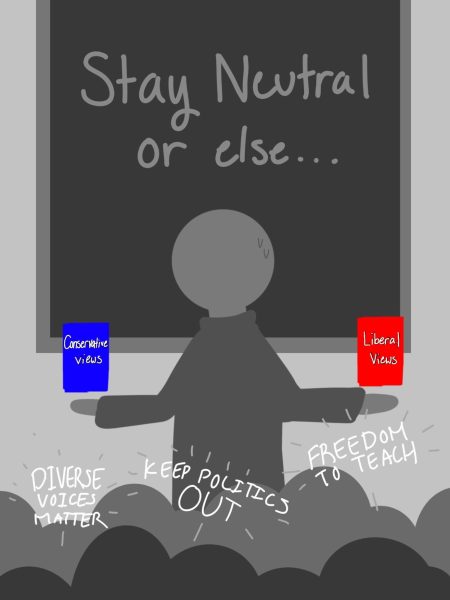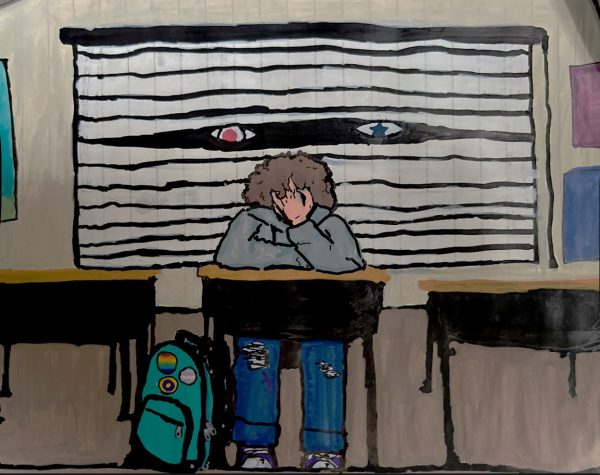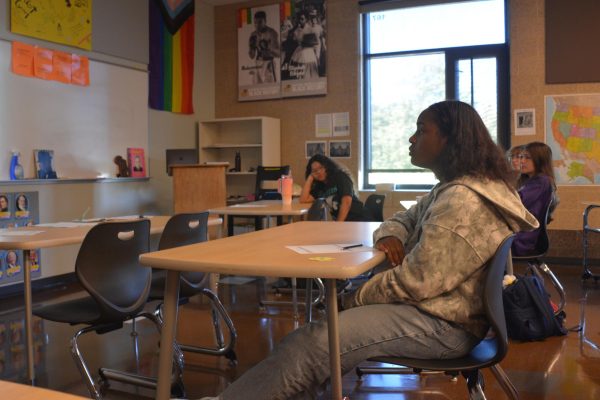The Court Battle Over Chagrin Highlands

Beachcomber Archives / Grant Gravagna
Eaton Corporation relocated from downtown Cleveland to Chagrin Highlands in 2013.
The Beachwood and Warrensville Heights City School Districts are currently in a legal tug of war over $8 million of retroactive property tax revenue as well as millions in future revenue.
The conflict is over property tax revenue from the Chagrin Highlands area, just north of the intersection of Harvard Ave. and Richmond Rd. In the last fifteen years, the area has seen significant development including the Aloft hotel, Eaton Corp., Piada, University Hospitals and Ahuja Medical Center, as well as several other businesses.
History
In 1990, the City of Beachwood annexed the Chagrin Highlands, 405 acres of undeveloped land that had been previously part of Warrensville Township.
Although the land transferred to the City of Beachwood, it remained part of the Warrensville City Schools. The Beachwood City School District made a request to the Ohio Board of Education that the Chagrin Highlands be transferred to its district so that the city and school district boundaries would match.
The Warrensville Heights City School District opposed the transfer, and the Ohio Board of Education ordered the school districts to negotiate.
According to court documents, the School Boards agreed on Judge Robert M. Duncan as a mediator, and he met repeatedly with representatives of both school districts.
“Over the seven years that the shared revenue agreement was negotiated many years ago, multiple superintendents, lawyers and treasurers were involved as well as the state-appointed mediator, Judge Duncan,” Superintendent Dr. Bob Hardis wrote in an email. “Actually, only Michele Mills, our Treasurer, was involved throughout the entire negotiation.”
According to a brief filed by Beachwood’s attorneys with the Cuyahoga County Appeals Court, Judge Duncan made recommendations based on the talks in April 1997, and in May of 1997, both school boards voted to approve the recommendations.
However, the agreement is now in dispute.
Beachwood’s argument
Beachwood argues that they dropped their request to transfer territory, and in exchange, the two districts would share property tax revenue from a parcel of land in Chagrin Highlands that was undeveloped at the time.
According to Beachwood, the agreement stated that Warrensville would receive the tax revenue initially, but once the valuation of property in the disputed area exceeded $22.25 million, the revenue sharing agreement would kick in, and Beachwood would receive 30% and Warrensville would receive 70% of the tax revenue.
“Chagrin Highlands was at first empty,” Superintendent Dr. Bob Hardis said. “The shared revenue agreement was intended to start when there was enough development of businesses to meet a threshold.”
Around 2013, the threshold was met, but Warrensville never shared the money.
In a brief filed before the Ohio Supreme Court, Beachwood City School District attorneys argued that the City of Beachwood had invested heavily in development of the Chagrin Highlands since the parties made the agreement, and had done so with the understanding that some of that investment would benefit the Beachwood schools.
“Pursuant to this agreement, the City of Beachwood poured millions of dollars into the property while Warrensville reaped the real estate tax revenue benefits,” the brief stated.
Beachwood’s lawsuit includes claims of “promissory estoppel, unjust enrichment, conversion, fraud and two counts of breach of contract,” meaning that Warrensville Heights has benefitted from the investments that the citizens of Beachwood made through their tax dollars.
Warrensville’s attorneys argue that “political subdivisions” such as school districts are immune from these sorts of claims.
Warrensville’s argument
Warrensville Heights City Schools Superintendent Donald Jolly, Jr. declined to comment for this story.
“Under normal circumstances, I would be honored to be interviewed and provide insight on any topic,” he wrote. In an email. “In this case, we are awaiting the decision by the Ohio Supreme Court and it is not the right time for me to comment on the case.”
However, it is clear that Warrensville has a different interpretation of the agreement.
Christian Williams of Pepple & Waggoner argued on behalf of the Warrensville Heights City School District before the Ohio Supreme Court on Oct. 6, 2021 that an exchange of money was not part of the agreement. They argued that there was supposed to be a property transfer of land to Beachwood back in 1997, and that transfer never occurred.
A property land transfer needs to be approved by the Ohio Board of Education. Since this approval did not happen, Warrensville Heights argues that the agreement is not valid.
Warrensville Heights’ brief with the Ohio Supreme Court argues that Ohio Board of Education oversight is necessary to prevent abuse.
“[Without Ohio Board of Education oversight], Ohio’s local school boards could give away public funds and bankrupt schools—forcing school closures or mergers—with no state oversight,” the brief states. “Or wealthy school districts (like Beachwood) could abuse territory transfer proceedings to take tax revenues from economically disadvantaged school districts (like Warrensville Heights)—again, with no state oversight.”
Beachwood’s attorney Holly Marie Wilson of the Reminger law firm argued that there was no need to get a land transfer approved since there was no land being transferred.
“They are calling it a territory transfer, but there is no transfer. It was simply a revenue agreement,” Beachwood’s Superintendent Dr. Bob Hardis said.
Warrensville, in turn, argues that since the division of funds resulted from the move to transfer territory, the Ohio Board of Education has oversight.
Warrensville Heights attorneys also argue that their fiscal officer would have had to sign off on any agreement to transfer funds, and since that did not happen, the agreement is not enforceable.
Warrensville also points out that Judge Duncan’s recommendations included a plan for the two school districts to collaborate on joint educational programs.
Beachwood’s brief before the Ohio Supreme Court claims that the districts did participate in joint educational programs after meetings in 2013-16 to get Warrensville to honor the agreement.
“Beachwood and Warrensville participated in joint educational programming that included a career exploratory program in 2014 and the Beachwood Medical Academy during the 2016-2017 school year,” the brief states.
The Court Cases
Warrensville and Beachwood have gone through several rounds of legal wrangling prior to arguing in Oct. 2021 in front of the Ohio Supreme Court.
In Aug. 2018, Beachwood City Schools sued Warrensville Heights City School District for $5 million, representing the amount of money that Beachwood claims it should have received under the agreement, according to Beachwood’s Treasurer and CFO Michele Mills.
In the first round at the Cuyahoga County Municipal Court, Judge Nancy Russo dismissed Beachwood’s arguments through a summary judgment ruling.
In 2020, Beachwood appealed Judge Russo’s decision with the Cuyahoga County Court of Appeals and won a 2-1 decision stating that the agreement was enforceable, and that the lower court erred in dismissing Beachwood’s claims.
Warrensville Heights proceeded to take the case to the Ohio Supreme Court. The Court heard arguments on Oct. 6 of 2021. The Ohio Supreme Court has yet to make a decision on the case, and there is no scheduled date for when it will be released.
The Money
Currently Warrensville Heights City School District is receiving the property tax revenue from the Chagrin Highlands area.
While the amount at issue was $5 million in 2018, it has risen to $8 million since then, and will continue to grow until this tug of war between the two districts is resolved by the courts.
“$5 million was the amount at the time that Warrensville had collected from Chagrin Highlands, and now [fall 2021] Beachwood should be given $8 million because they have still been collecting the money over the last three years,” Mills said.
Mills estimates that the 30 percent of tax revenue is expected to be close to $1 million annually moving forward.
According to Hardis, Beachwood City Schools has spent $361,549.71 on legal fees since 2017, when Warrensville backed out of the agreement.
“This is a large expenditure, but of course, over these years the case has wound through three levels of the court system, all the way through the Ohio Supreme Court, and involves many millions of dollars in tax revenue owed to Beachwood and more than a $1 million a year in tax revenue every year moving forward, so there are huge financial implications hinging on the resolution,” Hardis wrote in an email.
At publication, Warrensville Heights City School District has not provided information on how much they have spent in legal fees, but it seems likely that they have spent a comparable amount.
What Went Wrong
Warrensville Heights Mayor Brad Sellers describes himself as an interested party.
“I want to see it work out well for all parties,” he said.
Sellers feels that the conflict came about because the details of the original agreement were not clearly specified.
“When they entered this agreement – from my mind as an outside person looking in, it was theoretical in nature, with no teeth, no specifics,” he said.
“If you don’t lay out the details, it gets cloudy – now we’re here at the end, and it’s cloudy,” he added. “Your expectations are one thing, my expectations are another, all we can say is – well, it’s in the paper, but you’re reading the paper one way and I’m reading the paper another. And that’s the problem. And so now they’ve got the court case, which is always bad.”
Sellers suggests that some involved in the negotiation may not have understood the extent of development that was coming.
“Richmond Road where [all of the development is] now, used to be the haunted house where I used to go when I was a kid,” he said. “There was a model airplane field across the street.”
“There were some old hospitals that were there – a tuberculosis hospital and a women’s hospital – that’s all that was there,” he said. “So when somebody was pitching the idea, I guarantee that very few understood what was really coming their way.”
Another issue that Sellers points out is that most of the people involved are no longer representing the districts.
“So now, 25-30 years later, Chagrin Highlands is bubbling up, and people are looking for understanding and clarity – those folks aren’t [there anymore], and so it’s led to a lot of confusion because there’s a lot of money involved,” he said.
Hardis said the two sides approached a resolution several times since 2013.
“We started working with them… for years we tried to work with them on it, sometimes we were really close – they would agree that there was an agreement, let’s put it together, let’s figure out how to do this, but then they would back off again,” he said.
Sellers believes that the two parties should have been able to find common ground before it went to court.
“I would hope that like minds could come together and figure out something, but we could not even get there,” he said. “We could not even have a conversation.”
“Ultimately after several years of negotiating and them kind of backing away from their commitment, we decided to sue,” Hardis said.
Sellers also suggested that Warrensville Heights viewed the joint educational programs that Beachwood offered as an insufficient exchange for the amount of money involved.
“Warrensville is protesting giving any money because their take is that you have given us nothing,” Sellers said.
What’s Next?
The Ohio Supreme Court is currently considering whether Judge Russo was correct in her decision to dismiss Beachwood’s claims.
If the Supreme Court decides in Beachwood’s favor, then the case will go back to the trial court, the two sides will present their arguments and litigate the case.
If the Supreme Court decides in Warrensville’s favor, they will uphold the trial judge’s decision and the case will be dismissed.
If Beachwood wins the case, Hardis hopes the district could use the money to offset losses from years of state funding cuts.
“We would use this new revenue to offset the losses that we have experienced because of changes in legislation over many years,” he said.
Sellers emphasizes that a win for Warrensville would help their district improve programs for their students.
“If Warrensville wins the case, it strengthens the district,” he said. “The district is on the incline. It puts us financially on more solid footing.”

Brooklyn Bennett began writing for the Beachcomber in Fall of 2021. She has covered news stories and is interested in covering sports. In addition to writing...










![“My parents have always said that education is important. My parents are Chinese immigrants, I'm Chinese American, [and that's a] value that has always been ingrained in our community,” said Senior Lyndia Zheng, pictured with Tony Zheng](https://bcomber.org/wp-content/uploads/2025/10/DSC_4244-600x400.jpg)



Danelle • Jan 24, 2022 at 9:28 AM
Brooklyn you did an outstanding job! Great article.
Linda Willis • Jan 23, 2022 at 7:20 PM
This is magnificent. Congratulations Brooke
Nycole Daniels • Jan 21, 2022 at 4:19 PM
GREAT ARTICLE!
Staff writer Brooklyn Bennett did an over the top excellent job on this story. It is thoroughly detailed with stellar research. I do not live in either city and remain neutral. The opinion I formed is that Beachwood dropped their request for property transfer because they trusted Warrensville to honor the agreement of shared revenue making Warrensville actions beyond egregious.